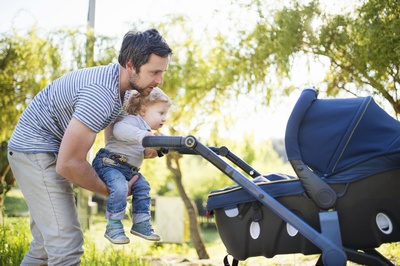That doesn't mean the fathers aren't involved. Over than half of unmarried low-income couples with children have positive co-parenting relationships and those supportive relationships were linked to their children showing more empathy, less emotional insecurity and fewer behavior problems.
There are certainly challenges. Having low income means the cost of raising children are more stressful, which puts a strain on diplomacy. Differing family backgrounds may also present challenges. Yet the survey results found that 56 percent of the families had good co-parenting relationships which was linked to positive outcomes for their children.

Participants in the survey were 4,266 unmarried couples and their preschool-aged children from eight cities across the country included in the Building Strong Families study. Parents completed questionnaires related to how much they worked with their partner as a team to raise their child, and their perception of the other parent as a supportive co-parent.
Children’s socioemotional development was measured by asking mothers a variety of questions about their child’s empathy toward other children, their emotional insecurity and their internalizing problems (such as how fearful they were) and externalizing problems (such as being overly active).
The results showed couples fell into four categories based on the quality of co-parenting and how each member of the couple thought the other did as a co-parent. The largest category – 56 percent of the sample - included couples with high-quality co-parenting in which both the mothers and fathers thought the other parent was supportive.
Those included the kids with the best outcomes.
In 25 percent of the sample co-parenting was of moderate-high quality, but fathers had more negative views of how the mother co-parented, and in that case respondents said kids had the worst outcome. In 12 percent of cases, co-parenting was rated moderate but mothers were much less happy than fathers were with the co-parenting relationship. In 7 percent of the results, there was low-quality co-parenting and mothers had more negative perceptions of the co-parenting relationship. Here children also did not fare well.
In cases of higher income, they were more likely to demonstrate high levels of supportive co-parenting, but that may mean lower income is a by-product of other issues, not the cause. Giving everyone more money obviously won't turn them into better parents.
These are survey results, not science, so everything from how the children fared to how much parents agreed that their partner was supportive are subjective.






Comments